Audit Committee
The Audit Committee refers to the governance body that is charged with oversight of the organisation’s audit and control functions. An audit committee is an operating committee of the Board of Directors. Committee members are drawn from members of the company's board, with a chairperson selected from among the members.
Composition
The 8th EU Company Law Directive (2006/43/EC) states that “Each public-interest entity shall have an audit committee. The Member State shall determine whether audit committees are to be composed of non-executive members of the administrative body and/or members of the supervisory body of the audited entity and/or members appointed by the general meeting of shareholders of the audited entity. At least one member of the audit committee shall be independent and shall have competence in accounting and/or auditing.”
Responsibilities
An audit committee’s role is better described as oversight or monitoring, rather than execution. The responsibilities of the committee typically include:
- Overseeing the financial reporting and disclosure process;
- Monitoring choice of accounting policies and principles;
- Monitoring the risk management policies and practices;
- Overseeing hiring, performance and independence of the external auditors;
- Oversight of regulatory compliance, ethics, and whistleblower rules;
- Monitoring the internal control process;
- Overseeing the performance of the internal audit function;
- Compensation of company executives (in the absence of a remuneration committee).
 The committee assists the board of directors fulfil its corporate governance and overseeing responsibilities in relation to an entity’s financial reporting, internal control system, risk management system and internal and external audit functions. Its role is to provide advice and recommendations to the board within the scope of its terms of reference, described in a committee charter.
The committee assists the board of directors fulfil its corporate governance and overseeing responsibilities in relation to an entity’s financial reporting, internal control system, risk management system and internal and external audit functions. Its role is to provide advice and recommendations to the board within the scope of its terms of reference, described in a committee charter.
The EU Directive 2006/43/EC, article 41.2, states that “the audit committee shall, inter alia:
(a) Monitor the financial reporting process;
(b) Monitor the effectiveness of the company's internal control, internal audit where applicable, and risk management systems;
(c) Monitor the statutory audit of the annual and consolidated accounts;
(d) Review and monitor the independence of the statutory auditor or audit firm, and in particular the provision of additional services to the audited entity.”
Evaluation
Audit committees should complete a self-evaluation annually to identify improvement opportunities. This involves comparing the committee's performance with its charter, any formal guidelines and rules, and with best practices. Such a review is confidential and may or may not include evaluations of particular members.


 Patrick Soenen: +32 477 75 78 61 - Monique Garsoux: +32 472 73 98 36
Patrick Soenen: +32 477 75 78 61 - Monique Garsoux: +32 472 73 98 36 info[at]qap.eu
info[at]qap.eu